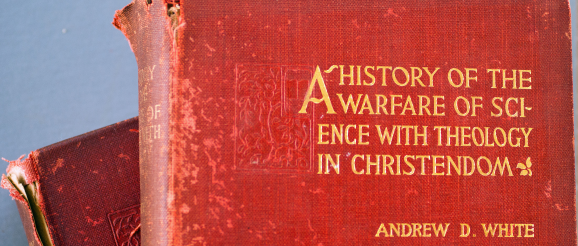Christian foundations of science and technology innovation, part II | Grateful to the dead

Opening historical salvo
A reasonable place to start this “story in ten facts” might be with the scientific revolution—traditionally dated from the 1543 publication of Copernicus’s On the Revolutions of the Heavenly Spheres to the 1687 publication of Isaac Newton’s Principia. As soon as we look at this revolution – the seedbed of all modern scientific disciplines—we see some potential problems with the warfare thesis.
First, we notice that the scientific revolution happened before the secularizing Enlightenment—traditionally dated from the death of the French king Louis XIV in 1715 to the outbreak of the French Revolution in 1789. In other words, modern science was born in a Europe still thoroughly Christian in its thinking and institutions. That being true, it’s not surprising that almost all of the scientists who founded modern scientific disciplines during that period were themselves Christians [see illustration at the top of part I]. You’ll see a few named here – and we could include so many others, from Nicolaus Copernicus to Johannes Kepler to Blaise Pascal. Every one of these innovators was a person of faith who pursued scientific and technological innovation out of Christian motives and understandings.
I know what you’re thinking. “Ah, but what about Galileo? Wasn’t his work on the solar system suppressed by the church? Didn’t he become a prisoner to religious bigotry?” Well, no. It turns out Galileo ended up on trial before the Inquisition more because of his political naivete and lack of tact than anything else, and that the trial was more a legal dispute than a clash of beliefs. Says historian Thomas Mayer, “The notion that Galileo’s trial was a conflict between science and religion should be dead. Anyone who works seriously on Galileo doesn’t accept that interpretation any more.”
But perhaps, we might think, the “warfare thesis” has a stronger footing in an earlier period – the Middle Ages. Maybe the church in that benighted age, as the philosophes claimed, really did retard our progress toward modern science. Given the way most of us have been trained to think about the medieval era, this may seem a more reasonable case.
So let’s begin our “story in ten facts” in the Middle Ages—with a look at the intellectual root system of that era, that extended right back to the earliest years of the church.
The story in 10 facts
Part I: two gifts and a mandate – foundational understandings for the Christian support of science
1. Creation is a gift for human flourishing
Fact #1: From the earliest years of their movement, Christians understood that the natural world was made by a good God to support human flourishing. In the resonant phrase sometimes attributed to the 16th-century spiritual master Ignatius of Loyola and grounded in words of the Apostle Paul (1 Corinthians 4:7), “all is gift.” We find this understanding richly developed in Scripture in passages that use the Hebrew terms shalom and ashre, and their Greek analogues eirene and makarios. As New Testament scholar Jonathan Pennington has argued, these biblical words speak to us of the material and social, as well as spiritual, goods that God provides to support human life well-lived. From Creation to Redemption to New Creation, the Bible paints a picture of God’s direct provision and care for his human creatures.
And this is why theologian Miroslav Volf has recently (in his 2019 book For the Life of the World) called the guild of theologians back to the central place of human flourishing in the task of theology: Because God’s intention for us was and is that each of us flourish and cause others to flourish through making ourselves fruitful in this created world he has given us.
Now if you’re like me, when you’ve read “be fruitful” in Genesis, you’ve always assumed this just means “have babies.” But the Hebrew term used there, Parah, is much broader. Parah points, in fact, to all the marvelous ways God’s human image-bearers have since the Creation sustained ourselves materially; developed social institutions; pursued truth, goodness, and beauty; and built cultures and civilizations. God’s command to us to “be fruitful” is an assignment to creatively draw out the potentialities of the world he has given us. From the very earliest church, Christians have understood this to be true, and have affirmed the goodness of the creation that supports us.
